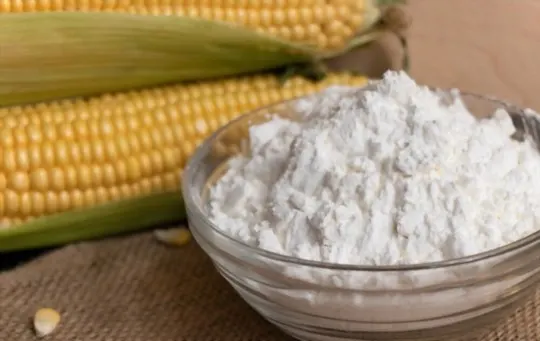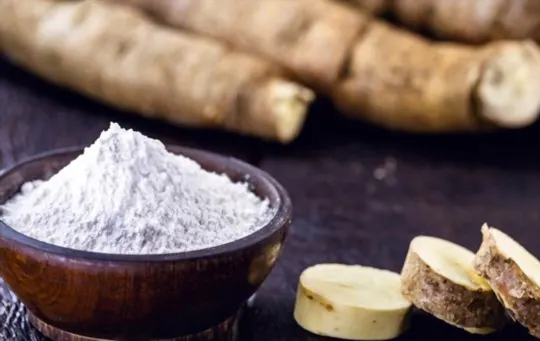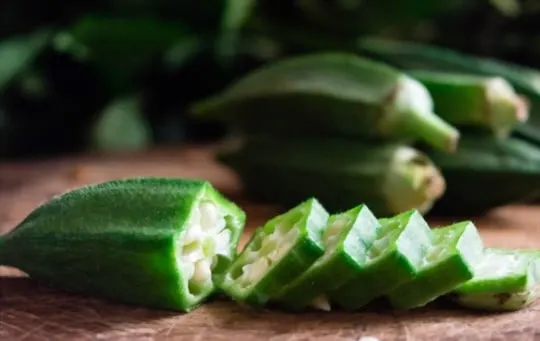Guess what? Finding the perfect substitute for file powder in your gumbo can feel like a treasure hunt.
And we’ve been there. Sure, it’s a key ingredient that gives gumbo its distinctive flavor and silkiness.
Yet, not everyone has file powder sitting around in their kitchen.
That’s why we’re here to guide you through some game-changing alternatives.
We’ve tested and tasted, so you don’t have to.
You might be wondering, “Why substitute at all?”
Well, sometimes you’ve got to work with what you’ve got.
And hey, experimenting in the kitchen is half the fun, right?
Trust us, these swaps are not just about getting by.
They’re about creating something equally delicious.
Ready to dive in and shake up your gumbo game?
What is File Powder?

File powder is a spice made from the dried and ground leaves of the sassafras tree.
It is often used in gumbo, a Louisiana dish made with seafood or poultry and a variety of vegetables.
File powder can also be used in other dishes, such as jambalaya or iced tea.
Some chefs also use file powder in marinades and sauces.
In terms of appearance, file powder is light brown and resembles a fine powder.
It has a spicy flavor similar to black pepper with a hint of lemon.
When used in gumbo, file powder adds thickness and a rich, earthy flavor.
How to Cook with File Powder?
Cooking with file powder can be quite simple.
Some chefs choose to sprinkle it onto their food before serving, while others like to mix the file powder with butter and use it as a spread.
Still, others blend file powder into a paste and marinate meat or seafood in it.
Here are some recipes that utilize file powder:
- Grilled Steak with Cajun Marinade.
- Blackened Catfish.
- Seafood Gumbo.
The 5 Best Substitutes for File Powder
File powder is a key ingredient in Cajun and Creole cooking, particularly in dishes like gumbo.
It adds a distinctive flavor and thickening properties to these recipes.
However, if you don’t have file powder on hand or prefer alternatives, there are several substitutes that can provide similar characteristics and functions.
In this guide, we will explore the top 5 substitutes for file powder, comparing their key characteristics and providing the proper ratios to ensure the best results in your recipes.
| Substitute | Key Characteristics | Proper Ratio |
|---|---|---|
| Cornstarch | Neutral flavor, readily available, and excellent thickening agent | Replace 1 tablespoon of file powder with 1 tablespoon of cornstarch |
| Tapioca Flour | Mild flavor, gluten-free, and adds a glossy texture | Replace 1 tablespoon of file powder with 1 tablespoon of tapioca flour |
| Arrowroot Powder | Neutral taste, gluten-free, and provides a smooth consistency | Replace 1 tablespoon of file powder with 1 tablespoon of arrowroot powder |
| Roux | Rich, nutty flavor and adds depth to dishes | Use a roux made from equal parts of flour and fat instead of file powder |
| Okra | Natural thickening agent and adds a unique flavor | Replace 1 tablespoon of file powder with 1 cup of sliced okra |
Now let’s dive into each substitute in more detail:
1 – Cornstarch

Another popular substitute is cornstarch.
It has a slightly sweet taste and works well with other spices like red pepper or black pepper.
It isn’t as spicy compared to file powder and doesn’t add much heat to your dish.
Many chefs like using this option because it’s very easy to find, inexpensive, and adds thickening power and gloss without altering the dish’s flavor.
Although it’s a common ingredient, you should use cornstarch sparingly.
It can add a starchy taste to your food if added in excess.
Hence, it’s necessary to use this ingredient sparingly.
- Key Characteristics: Cornstarch is a versatile and readily available thickening agent. Although it doesn’t contribute any specific flavor, it is an excellent substitute for file powder.
- Proper Ratio: Replace 1 tablespoon of file powder with 1 tablespoon of cornstarch. Adjust the quantity based on the desired thickness of your dish.
2 – Tapioca Flour

Tapioca flour is another substitute for file powder.
Tapioca does not contain any heavy flavor or scent with a similar taste.
Made from the starchy cassava root, two main types are available: fine and coarse.
The coarse version resembles cornmeal, while the refined version looks like flour.
It’s important to note that tapioca flour should be used in moderation if it is substituted for file powder.
It can easily overpower your dish and taste gritty.
You’ll find this ingredient in most grocery stores, health food shops, or local specialty markets.
You can also purchase it online.
- Key Characteristics: Tapioca flour has a mild flavor and is gluten-free, making it a suitable substitute for file powder. It adds a glossy texture to recipes.
- Proper Ratio: Replace 1 tablespoon of file powder with 1 tablespoon of tapioca flour. Adjust the quantity based on the desired thickness of your dish.
3 – Arrowroot Powder

There are two types of arrowroot powder available in grocery stores: white and red.
It’s important to note that the white variety has a more mellow flavor than the red version, which is stronger.
Both versions have a similar texture to cornstarch, but they aren’t as fine.
It also works best when blended with other ingredients.
This ingredient is slightly more expensive than cornstarch, but it’s healthier.
It’s also gluten-free and has many uses in vegan dishes.
Arrowroot powder does not have the starchy taste of tapioca flour or file powder.
The best substitute for file powder is arrowroot.
It has a similar texture and works well with other spices while adding lightness to your dishes.
- Key Characteristics: Arrowroot powder has a neutral taste and is often used as a gluten-free thickening agent. It provides a smooth consistency to dishes.
- Proper Ratio: Replace 1 tablespoon of file powder with 1 tablespoon of arrowroot powder. Adjust the quantity based on the desired thickness of your dish.
4 – Roux

It is also possible to make your flour substitute.
For instance, you can mix butter or oil with flour until it reaches a thick paste consistency.
This option is the least frequently used because it’s slightly more difficult to prepare and can alter the flavor of your final dish.
However, it may be worth adding this ingredient if you are looking for a simple substitute.
If you’re looking for a roux substitute, mix equal parts butter and flour until you reach a paste consistency.
- Key Characteristics: A roux is a mixture of equal parts of flour and fat that is cooked until it reaches a desired color. It adds a rich, nutty flavor and depth to dishes, acting as both a thickener and flavor enhancer.
- Proper Ratio: Use a roux made from equal parts of flour and fat (such as butter) instead of file powder. Adjust the quantity based on the desired thickness and flavor profile of your dish.
5 – Okra

A final alternative to file powder is okra.
It’s a popular vegetable available in many grocery stores, farmer’s markets, or health food shops.
Although it isn’t as flavorful as file powder, okra has natural thickening power and adds body to soups and stocks.
Okra can also be blended into an almost smooth paste and added to dishes.
Not only is okra healthy, but it also has a mild flavor that won’t overpower your dish.
- Key Characteristics: Okra is a vegetable commonly used in Southern cooking and serves as a natural thickening agent. It also adds a unique flavor to dishes.
- Proper Ratio: Replace 1 tablespoon of file powder with 1 cup of sliced okra. Adjust the quantity based on the desired thickness and flavor contribution to your dish.
Conclusion
File powder is a common seasoning that has been used for over 100 years.
However, it’s important to note that not everyone can find file powder at their local grocery store.
If you’re unable to find file powder, several substitutes are available: cornstarch, tapioca flour, arrowroot powder, and okra.
All of these ingredients can easily be found in most grocery stores.
If you cannot find file powder substitutes at your local store, it’s also possible to purchase them online.

The 5 Best Substitutes for File Powder
Ingredients
- Cornstarch
- Tapioca Flour
- Arrowroot Powder
- Roux
- Okra
Instructions
- Pick your favorite substitute from the list above.
- Follow cooking directions for your selected substitute with the proper ratio of ingredients.

Andrew Gray is a seasoned food writer and blogger with a wealth of experience in the restaurant and catering industries. With a passion for all things delicious, Andrew has honed his culinary expertise through his work as a personal chef and caterer.
His love for food led him to venture into food writing, where he has contributed to various online publications, sharing his knowledge and insights on the culinary world. As the proud owner of AmericasRestaurant.com, Andrew covers a wide range of topics, including recipes, restaurant reviews, product recommendations, and culinary tips.
Through his website, he aims to inspire and educate fellow food enthusiasts, offering a comprehensive resource for all things food-related.

Leave a comment